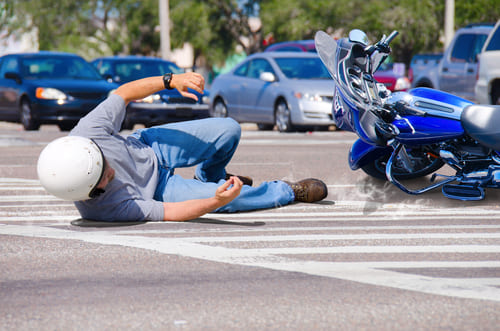Recent Blog Posts
Can I Be Charged with Assault When Acting in Self-Defense?
 When someone attacks you, you are entitled to fight them off to avoid getting hurt. Unfortunately, the person who attacked you first might claim that you attacked them, and it can be difficult to prove that you were acting in self-defense. They might have had the intention of injuring you, but if you manage to protect yourself and stop them from hurting you and you do not have proof that they attacked you first, you might face charges of assault, battery, aggravated assault, or aggravated battery. This can be a very unfair and overwhelming situation to be in. If this happens to you, contact a qualified Naperville, IL criminal defense lawyer who can help the court see what really happened.
When someone attacks you, you are entitled to fight them off to avoid getting hurt. Unfortunately, the person who attacked you first might claim that you attacked them, and it can be difficult to prove that you were acting in self-defense. They might have had the intention of injuring you, but if you manage to protect yourself and stop them from hurting you and you do not have proof that they attacked you first, you might face charges of assault, battery, aggravated assault, or aggravated battery. This can be a very unfair and overwhelming situation to be in. If this happens to you, contact a qualified Naperville, IL criminal defense lawyer who can help the court see what really happened.
What Does Self-Defense Entail?
If someone attacked you but got hurt as you defended yourself against their attack, they might try to claim that you attacked them first and pretend they were the victim. While proving what happened might feel necessary for the sake of justice, truth, and your reputation, there are practical reasons to do so as well. If you are charged with assault or battery, you could face serious consequences that you do not deserve if you were defending yourself against the true attacker. Serving a jail sentence and having a permanent criminal record does not seem fair if the so-called victim of your attack was trying to hurt you first.
I Have the Right to Remain Silent, But Should I?
 If you have ever watched a movie where someone gets arrested, there is a good chance that you heard the arresting officers tell that person, “You have the right to remain silent,” as they handcuff them and put them in the back of their police car. TV shows and movies are the reason why most Americans can rattle off a good portion of the Miranda warning, even if they do not fully understand what it all means. Getting arrested, especially for the first time, can be an overwhelming experience and you might feel intimidated into offering information that you are not required to give. Understanding your rights is crucial in a criminal arrest. A qualified Naperville, IL criminal defense attorney can offer insight into what you might expect and how you should conduct yourself if you get arrested to avoid incriminating yourself.
If you have ever watched a movie where someone gets arrested, there is a good chance that you heard the arresting officers tell that person, “You have the right to remain silent,” as they handcuff them and put them in the back of their police car. TV shows and movies are the reason why most Americans can rattle off a good portion of the Miranda warning, even if they do not fully understand what it all means. Getting arrested, especially for the first time, can be an overwhelming experience and you might feel intimidated into offering information that you are not required to give. Understanding your rights is crucial in a criminal arrest. A qualified Naperville, IL criminal defense attorney can offer insight into what you might expect and how you should conduct yourself if you get arrested to avoid incriminating yourself.
The Main Takeaway? Always Have a Lawyer Present
In most cases, during an arrest, the Miranda warning is recited out loud for people at the time of their arrest. There are some variations, but the most common include the following:
Can a Juvenile Record Be Expunged in Illinois?
 Most people would probably say they regret some of the decisions they made in their youth. For some people, mistakes they wish they had not made might be connected to the way they treated their parents or lied about studying for a test. For others, poor decision-making in their youth led them to commit juvenile offenses that could follow them into adulthood. Having a juvenile record can make it difficult for someone hoping for a fresh start at living a responsible life. Fortunately, in some cases, it is possible to get a juvenile record expunged. If this is something you are interested in, speak with a qualified Naperville, IL defense attorney to understand your options.
Most people would probably say they regret some of the decisions they made in their youth. For some people, mistakes they wish they had not made might be connected to the way they treated their parents or lied about studying for a test. For others, poor decision-making in their youth led them to commit juvenile offenses that could follow them into adulthood. Having a juvenile record can make it difficult for someone hoping for a fresh start at living a responsible life. Fortunately, in some cases, it is possible to get a juvenile record expunged. If this is something you are interested in, speak with a qualified Naperville, IL defense attorney to understand your options.
What is Automatic Expungement?
Expungement is a legal way to have your criminal record officially erased, making it seem as if it never happened. In the state of Illinois, there are certain types of arrests or other contact with the police that are eligible for automatic expungement. By the first of January every year, these records can be expunged automatically. If you were younger than 18 years old when you were arrested, that criminal record can be expunged if certain conditions are met.
What Makes Bribery a Federal Crime in Illinois?
 Bribery, the act of offering, giving, receiving, or soliciting something of value with the intent to influence the actions of an individual in a position of authority, is a serious offense believed to damage public trust and the legal system. In Illinois, bribery is not only considered a moral wrong but also a federal crime with serious consequences for those involved. If you are facing bribery charges, you must act quickly to begin building your defense. Your first step should be hiring an experienced criminal defense attorney.
Bribery, the act of offering, giving, receiving, or soliciting something of value with the intent to influence the actions of an individual in a position of authority, is a serious offense believed to damage public trust and the legal system. In Illinois, bribery is not only considered a moral wrong but also a federal crime with serious consequences for those involved. If you are facing bribery charges, you must act quickly to begin building your defense. Your first step should be hiring an experienced criminal defense attorney.
At Law Office of Philip R. Nathe, Attorney Nathe has ample experience in defending clients against serious federal crimes like bribery. Attorney Nathe is a former Assistant State’s Attorney, ensuring he knows every angle of the criminal process, both from the criminal defense and prosecutor’s sides. This unique knowledge and skillset ensure clients are fully protected under the law throughout their criminal proceedings.
What You Need to Know About the Crime of Burglary in Illinois
 Burglary, a crime that strikes at the heart of safety and security, is a serious offense that can have long-lasting consequences for those convicted of the crime. In Illinois, burglary laws are designed to protect individuals and property from unauthorized entry and theft.
Burglary, a crime that strikes at the heart of safety and security, is a serious offense that can have long-lasting consequences for those convicted of the crime. In Illinois, burglary laws are designed to protect individuals and property from unauthorized entry and theft.
Understanding the particulars of burglary laws in Illinois is essential for anyone seeking to navigate the legal system, especially if you are facing charges. Remember, contacting a criminal defense lawyer is important to ensure your rights are safeguarded through the criminal process if you are facing burglary charges.
At Law Office of Philip R. Nathe, our long experience representing Illinoisans charged with various crimes makes our firm the very best in defending clients against serious criminal charges like burglary. As a former Assistant State's Attorney, Attorney Nathe has a strong understanding of criminal law from both sides. As a result, those facing charges can trust that when they hire our firm, they will get our full effort and attention no matter how big or small their case is.
Elements of Drug Trafficking in Illinois
 Drug trafficking is a serious offense in Illinois, with severe legal consequences for those convicted. Understanding the key elements of drug trafficking can help individuals navigate the legal system effectively and protect their rights. If you are facing drug trafficking charges, you should strongly consider obtaining legal guidance from an attorney.
Drug trafficking is a serious offense in Illinois, with severe legal consequences for those convicted. Understanding the key elements of drug trafficking can help individuals navigate the legal system effectively and protect their rights. If you are facing drug trafficking charges, you should strongly consider obtaining legal guidance from an attorney.
As a former Assistant State Attorney, Law Office of Philip R. Nathe understands the criminal process from both sides of the situation. As a result, Attorney Nathe understands what prosecutors are looking for and has long relationships with local prosecutors and judges. He can provide clients with unparalleled legal representation in criminal matters.
What is Drug Trafficking Technically?
Drug trafficking involves the distribution, sale, transportation, or possession of illegal drugs. In Illinois, drug trafficking is a felony offense that carries significant penalties, such as multiple years in prison and expensive fines. The state takes a strong stance against drug trafficking to combat the illegal drug trade and protect public safety.
Defense Strategies for College Students Facing Drug Charges in Illinois
 Facing drug charges as a college student can be a very scary experience. However, there are legal defenses available that can protect your rights and potentially help you in this difficult situation. If you are a college student facing drug charges, it is important you hire an experienced criminal defense attorney. Your lawyer will be knowledgeable regarding the criminal process in Illinois and will make sure your rights are protected.
Facing drug charges as a college student can be a very scary experience. However, there are legal defenses available that can protect your rights and potentially help you in this difficult situation. If you are a college student facing drug charges, it is important you hire an experienced criminal defense attorney. Your lawyer will be knowledgeable regarding the criminal process in Illinois and will make sure your rights are protected.
Unlawful Search and Seizure
One common defense you may be able to use is unlawful search and seizure. Law enforcement officers must follow specific protocols when conducting searches and seizures to ensure they are in compliance with the Fourth Amendment of the U.S. Constitution. If evidence was obtained through an illegal search or seizure, it may be deemed inadmissible in court, potentially leading to a dismissal of the charges.
Tips To Avoid Being Pulled Over By A Police Officer in Illinois
 Law enforcement can pull you over at any time. Generally, an officer will not pull someone over without reason. However, oftentimes, a driver may not understand why they are being pulled over in the first place. A driver may not realize that they were doing something to provoke or garner suspicion from an officer, such as a traffic violation, which prompted them to pull them off to the side of the road. Understanding what you could have done to prevent this outcome could help you avoid it becoming a reality in the future. For those who have been pulled over and now face charges for whatever reason, hiring a skilled criminal defense attorney is in your best interest.
Law enforcement can pull you over at any time. Generally, an officer will not pull someone over without reason. However, oftentimes, a driver may not understand why they are being pulled over in the first place. A driver may not realize that they were doing something to provoke or garner suspicion from an officer, such as a traffic violation, which prompted them to pull them off to the side of the road. Understanding what you could have done to prevent this outcome could help you avoid it becoming a reality in the future. For those who have been pulled over and now face charges for whatever reason, hiring a skilled criminal defense attorney is in your best interest.
Keep the Rules of the Road
You should do everything you can to stay off law enforcement’s radar, which includes adhering to driving regulations and traffic laws. One of the easiest tips to follow the posted speed limits. It is one of the most common reasons a driver is pulled over and given a ticket. Other rules to easily followable rules are:
Most Common Types of Fraud in Illinois
 Fraud is a common complication in our society and is often considered a white-collar crime. Because of how broad the term is, many different types of fraud crimes exist. Some types of fraud are more common than others, and thankfully, Illinois provides many defense options for those looking at fraud charges. The first line of defense is to secure yourself an experienced and skillful attorney to help build an effective defense strategy.
Fraud is a common complication in our society and is often considered a white-collar crime. Because of how broad the term is, many different types of fraud crimes exist. Some types of fraud are more common than others, and thankfully, Illinois provides many defense options for those looking at fraud charges. The first line of defense is to secure yourself an experienced and skillful attorney to help build an effective defense strategy.
What Fraud Means In Illinois
Fraud is considered a deceptive practice in Illinois. Many different acts can be included in fraud, but the overall premise is the intention to deceive another individual to obtain something of value. Fraud can consist of many acts and be difficult to prove in court. It can range from minor offenses to felony charges, and a conviction can have long-term negative effects.
Illinois’ Most Common Drug Crimes
 Drug crimes are one of the most common types of crime committed across the nation and are a particular problem in Illinois. Drug crime convictions can detrimentally impact your life in many ways for many years. The types of drug crimes that occur in Illinois vary but some are more common than others. Do not allow a drug charge to destroy your life and career prospects. Instead, contact a skilled criminal defense attorney immediately following any charges so that they can get to work right away on safeguarding your future.
Drug crimes are one of the most common types of crime committed across the nation and are a particular problem in Illinois. Drug crime convictions can detrimentally impact your life in many ways for many years. The types of drug crimes that occur in Illinois vary but some are more common than others. Do not allow a drug charge to destroy your life and career prospects. Instead, contact a skilled criminal defense attorney immediately following any charges so that they can get to work right away on safeguarding your future.
Illegal Possession of a Controlled Substance
It is illegal to possess a controlled substance such as heroin or cocaine in the state of Illinois. The possession of either of these drugs is considered a felony charge. However, the punishment will depend on the amount in a person’s possession. This drug crime is without a doubt the most common that a prosecutor will file each year.














